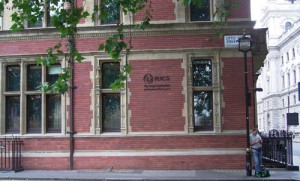 The RICS, an international, self regulatory professional body relating to real estate, has called for a mechanism for consumer protection and fair practices in real estate transactions. This will also help increase domestic and foreign investments in this sector.
The RICS, an international, self regulatory professional body relating to real estate, has called for a mechanism for consumer protection and fair practices in real estate transactions. This will also help increase domestic and foreign investments in this sector.
The real estate transactions are now non-transparent and biased towards developers. This impacts consumers in the form of high cost and loss of interest fee on capital locked in delayed projects.
As a measure of support for infrastructure development and affordable housing, RICS suggests that the definition of infrastructure be broadened to include integrated townships of over 100 acres and encouraging private investments in infrastructure sector by allowing long-term sources of capital such as insurance and pension funds.
A dedicated affordable housing fund along the lines of infrastructure fund could be set up with the government contributing a portion of the fund through bonds ad retail investments in lieu of tax benefits.
The funds should be available to developers, NGOs, private intermediaries at low interest rates for constructing houses for low income groups and economically weaker sections.
State Governments could also consider setting up a ‘housing trust fund’ from their own resources to augment supply of low cost housing. Unutilised land could also be recovered from developers or vacant land tax levied to promote efficient use of land. Reverse tendering could be adopted in the place of auctions to limit land cost for affordable housing.





